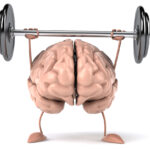Embarking on a fitness journey can be both exciting and overwhelming, especially if you’re unsure where to begin. Whether you’re a complete beginner or looking to rekindle your fitness routine, this article will serve as your ultimate guide. We’ll cover five important points/notes to consider, address common FAQs, outline five pros and cons of starting a fitness regimen, and conclude with a final verdict to help you take the first steps towards a healthier lifestyle.

Important Points:
- Assess your current fitness level: Before diving into any fitness program, it’s crucial to evaluate your current physical condition. This includes considering your overall health, any pre-existing medical conditions, and your exercise history.
- Set realistic goals: Define what you want to achieve from your fitness journey, but ensure your goals are realistic and attainable. Setting small milestones along the way will help you stay motivated and track your progress effectively.
- Choose activities you enjoy: Engaging in physical activities that you genuinely enjoy increases the likelihood of sticking to your fitness routine. Explore various options such as running, swimming, dancing, or team sports until you find activities that bring you joy.
- Seek professional guidance: If you’re new to exercise or have specific health concerns, consulting a fitness professional, such as a personal trainer or exercise physiologist, can provide valuable guidance and ensure you’re starting on the right track.
- Prioritize proper nutrition and rest: A well-rounded fitness journey incorporates not only exercise but also proper nutrition and sufficient rest. Fueling your body with a balanced diet and allowing time for recovery are essential components for achieving optimal results.

FAQ’s:
How often should I work out?
The frequency of your workouts depends on various factors, such as your fitness goals, availability, and current fitness level. Aim for at least 150 minutes of moderate-intensity aerobic activity or 75 minutes of vigorous-intensity activity per week, spread across several days.
Should I focus on cardio or strength training?
Both cardio and strength training offer unique benefits. Ideally, you should incorporate a combination of both into your fitness routine. Cardiovascular exercises improve endurance and heart health, while strength training helps build muscle, increase metabolism, and enhance overall strength.
Do I need to join a gym to get fit?
While joining a gym can provide access to a wide range of equipment and classes, it’s not necessary for everyone. Many effective workouts can be done at home or outdoors, using minimal equipment or bodyweight exercises.
How long does it take to see results?
The timeframe for seeing fitness results varies from person to person. Factors such as consistency, intensity, genetics, and nutrition play a role. Generally, noticeable changes may occur within 4-12 weeks of consistent exercise and a balanced diet.
How do I stay motivated?
Motivation can be challenging to maintain, but a few strategies can help. Set specific, realistic goals, track your progress, find a workout buddy or accountability partner, vary your routine, and reward yourself for achieving milestones.

Pro’s:
- Improved physical health: Regular exercise can boost cardiovascular health, strengthen bones and muscles, and reduce the risk of chronic diseases like diabetes and obesity.
- Enhanced mental well-being: Exercise releases endorphins, which can improve mood, reduce stress, and combat symptoms of anxiety and depression.
- Increased energy levels: Engaging in physical activity can enhance energy levels and combat feelings of fatigue, improving overall productivity and daily functioning.
- Weight management: Combining exercise with a balanced diet helps create a calorie deficit, aiding in weight loss or weight maintenance, promoting a healthier body composition.
- Social connections: Participating in fitness activities, whether in a gym, group class, or sports team, can provide opportunities to meet like-minded individuals, fostering social connections and a sense of community.

Con’s
- Risk of injury: Engaging in physical activities carries a risk of injury, especially if proper form and technique are not followed or if pushing beyond your limits. It’s important to start slowly, warm up properly, and listen to your body to avoid injuries.
- Time commitment: Incorporating regular exercise into your routine requires time and dedication. Balancing work, family, and other responsibilities may make it challenging to consistently allocate sufficient time for workouts.
- Plateauing progress: After an initial phase of improvement, progress may stagnate, making it harder to achieve further gains. Plateaus can be discouraging and may require modifications to your routine, such as varying exercises or increasing intensity, to overcome.
- Financial costs: Joining a gym, hiring a personal trainer, or purchasing fitness equipment can come with financial implications. While there are budget-friendly alternatives, such as home workouts or outdoor activities, some individuals may find the costs prohibitive.
- Mental barriers: Overcoming mental barriers, such as lack of motivation, self-doubt, or fear of judgment, can be a significant challenge. Building a resilient mindset and addressing these barriers are essential for long-term adherence to a fitness routine.

Final Verdict:
Starting a fitness journey can have transformative effects on both your physical and mental well-being. The benefits of regular exercise, such as improved health, increased energy levels, and enhanced mood, are well-documented. However, it’s important to consider the individual factors that may influence your experience. By assessing your current fitness level, setting realistic goals, and choosing activities you enjoy, you can establish a solid foundation for success. Seeking professional guidance, prioritizing nutrition and rest, and staying motivated through strategies like goal setting and accountability can further enhance your progress.
While there are cons to starting a fitness regimen, such as the risk of injury, time commitment, and potential financial costs, these can be mitigated with proper planning and precautions. Plateauing progress and mental barriers can also be overcome with patience, persistence, and a growth mindset. In the end, the decision to start a fitness journey rests with you. It’s important to weigh the pros and cons, consider your personal circumstances, and make an informed choice. Remember that any step towards improving your health and well-being is a step in the right direction.
Ultimately, by embracing the challenges and committing to a fitness routine that suits your needs and preferences, you can embark on a fulfilling journey towards a healthier and happier lifestyle.












No Comment! Be the first one.